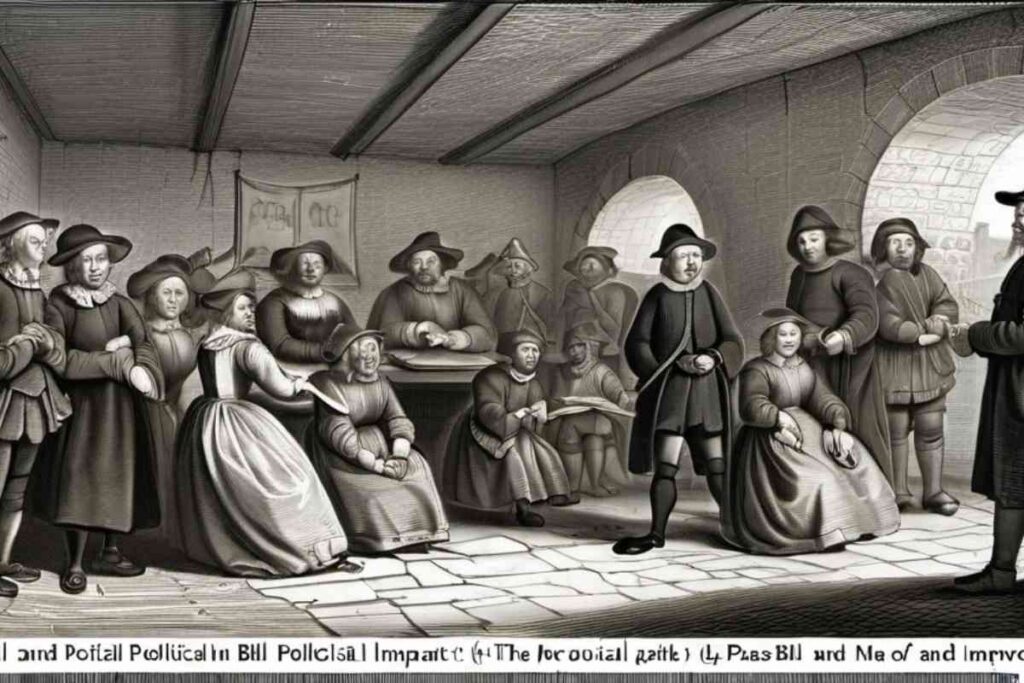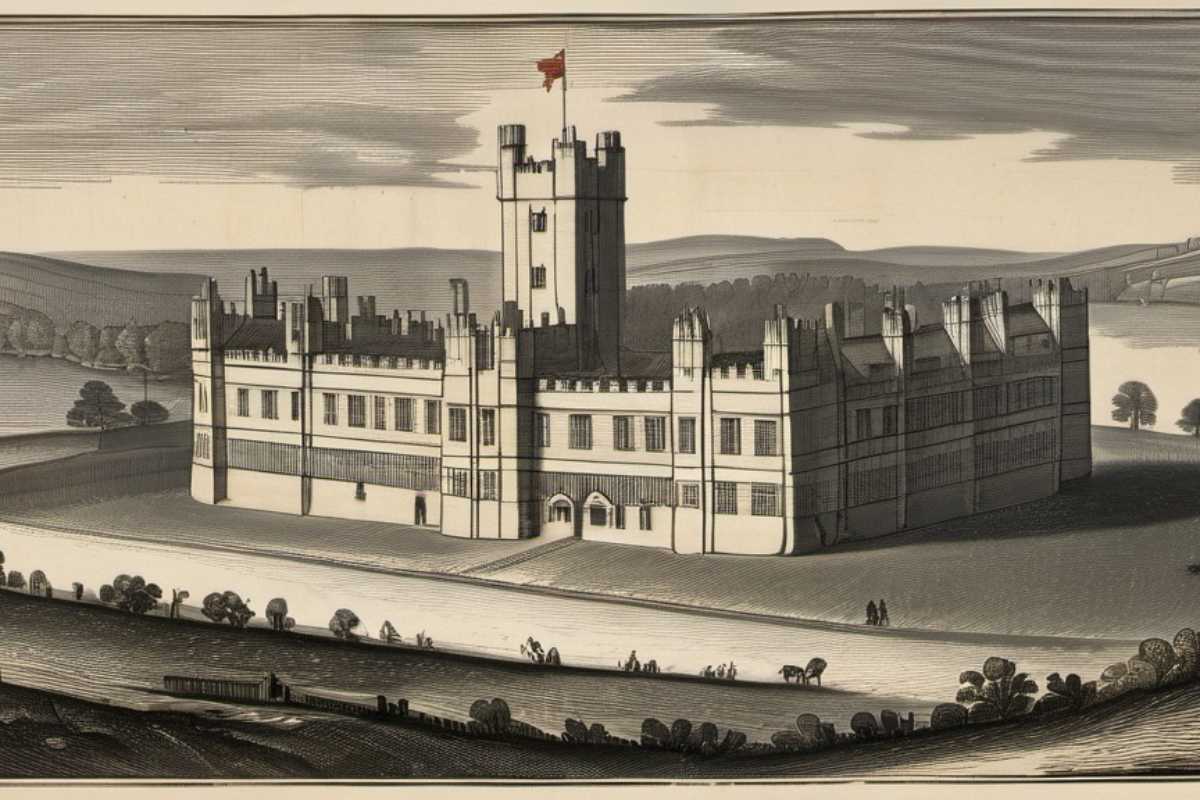The 1624 Welsh Bill marks an important chapter in the history of Welsh governance, shaping the future of social welfare and legal structures.
This historic legislation helped pave the way for a more structured system of laws in Wales, ensuring better governance and support for the community.
By examining the significance of this bill, we can better understand its lasting effects on Welsh society and the evolution of its legal framework.
The 1624 Welsh Bill: Understanding Its Role

The 1624 Welsh Bill, introduced in the early 17th century, was a crucial piece of legislation that reshaped the governance of Wales.
This bill laid the foundation for many of the legal and political changes that followed, making it a cornerstone in Welsh history.
What Was the 1624 Welsh Bill?
The 1624 Welsh Bill, also known as the “Act for the Relief of the Poor,” aimed to address various social and economic issues in Wales at the time.
Its main purpose was to establish a more structured system for governing the poorer segments of Welsh society.
By providing a legal framework for dealing with poverty, the bill represented a significant step forward in addressing issues that had long been ignored.
The bill’s introduction was part of a broader trend in early 17th-century England and Wales, where governments began to recognize the importance of social welfare programs and economic stability.
As Wales faced increasing challenges with poverty and an unregulated economy, the Welsh Bill sought to establish a system of support for its most vulnerable citizens.
The Key Provisions of the 1624 Welsh Bill
The 1624 Welsh Bill was comprehensive in its scope. Some of the key provisions included:
- Establishment of Local Governance Structures: The bill called for the establishment of local committees that would oversee the welfare of the poor in their communities. These committees were given the authority to collect taxes and provide relief to those in need.
- Support for the Poor: One of the primary goals of the bill was to provide assistance to the impoverished people of Wales. It set up a system of poor relief, which provided food, shelter, and clothing to those unable to support themselves.
- Encouragement of Work: Another important aspect of the bill was its emphasis on encouraging work. It aimed to reduce dependency on government assistance by creating job opportunities for the poor. This provision sought to reduce long-term poverty by helping people become self-sufficient.
- Regulation of the Economy: The Welsh Bill also introduced regulations that helped control the economy. This was done by overseeing trade practices and preventing the exploitation of workers. By promoting fair practices, the bill aimed to create a more stable and prosperous society for all.
The Social and Political Impact of the 1624 Welsh Bill

The passage of the 1624 Welsh Bill had a profound impact on the social and political landscape of Wales. It not only helped to address the immediate issues of poverty but also set a precedent for future legislation.
- Improvement of Living Conditions: One of the most significant outcomes of the bill was the improvement in the living conditions of the poor. By establishing a system of poor relief, the bill ensured that people who were previously without any support now had access to basic necessities.
- Increased Political Participation: The establishment of local committees gave Welsh citizens more influence over local governance. These committees played a crucial role in the implementation of the bill, and many local leaders gained political influence as a result.
- A More Structured Society: By regulating the economy and introducing new governance structures, the 1624 Welsh Bill helped to create a more organized and stable society. This shift toward a more structured society was an important step in the evolution of Welsh governance.
How the 1624 Welsh Bill Influenced Later Legislation
The 1624 Welsh Bill did not stand alone in the history of Welsh governance. It was part of a series of legislative actions aimed at improving the social fabric of Wales.
Over the years, other laws followed in its footsteps, building on the foundation laid by the Welsh Bill, further improving social welfare and governance.
For example, the Poor Laws introduced in the 18th century expanded on the principles outlined in the 1624 Welsh Bill.
These laws continued the work of supporting the poor and regulating the economy, further solidifying the government’s role in addressing social issues.
Modern Relevance of the 1624 Welsh Bill
While the 1624 Welsh Bill was enacted more than four centuries ago, its influence can still be felt today.
Many of the principles established by the bill laid the groundwork for the modern social welfare system in Wales.
The idea that government has a responsibility to care for its citizens, particularly the vulnerable, remains a cornerstone of Welsh policy.
Furthermore, the emphasis on local governance has persisted. In the present day, Wales continues to promote community-based solutions to social issues, reflecting the same ideals first introduced in the 1624 Welsh Bill.
How the Welsh Bill Changed the Course of Welsh History
The 1624 Welsh Bill changed Welsh history by shifting the focus from a disconnected, unorganized society to one that was more regulated and supportive of its people.
By providing a legal structure for welfare and economic regulation, it not only improved the lives of many but also set a precedent for future governance. These changes paved the way for a more equitable and stable Welsh society.
Conclusion
The 1624 Welsh Bill stands as a testament to Wales’ commitment to improving the lives of its citizens through legislative action.
The bill addressed issues of poverty, local governance, and economic stability, laying the groundwork for many of the social reforms that followed.
Even today, its legacy remains integral to Welsh governance and continues to influence the nation’s approach to social welfare.
By understanding the 1624 Welsh Bill and its impact, we gain a better appreciation for how legislation can shape a society for the better, ensuring that the most vulnerable are not forgotten.
FAQs
What was the purpose of the 1624 Welsh Bill?
The 1624 Welsh Bill aimed to address poverty, establish local governance structures, and provide relief to the poor in Wales.
How did the 1624 Welsh Bill impact Welsh society?
It improved living conditions, encouraged local governance, and helped create a more stable and organized society in Wales.
What provisions were included in the 1624 Welsh Bill?
The bill included provisions for poor relief, local governance, job opportunities for the poor, and economic regulation.
How did the Welsh Bill influence future legislation?
The bill laid the foundation for later social welfare laws, including the 18th-century Poor Laws.
Is the 1624 Welsh Bill still relevant today?
Yes, the principles of the bill, especially local governance and social welfare, continue to influence modern Welsh policies.
Where can I learn more about the 1624 Welsh Bill?
You can explore resources from the National Library of Wales and the Welsh Government for further historical context.






